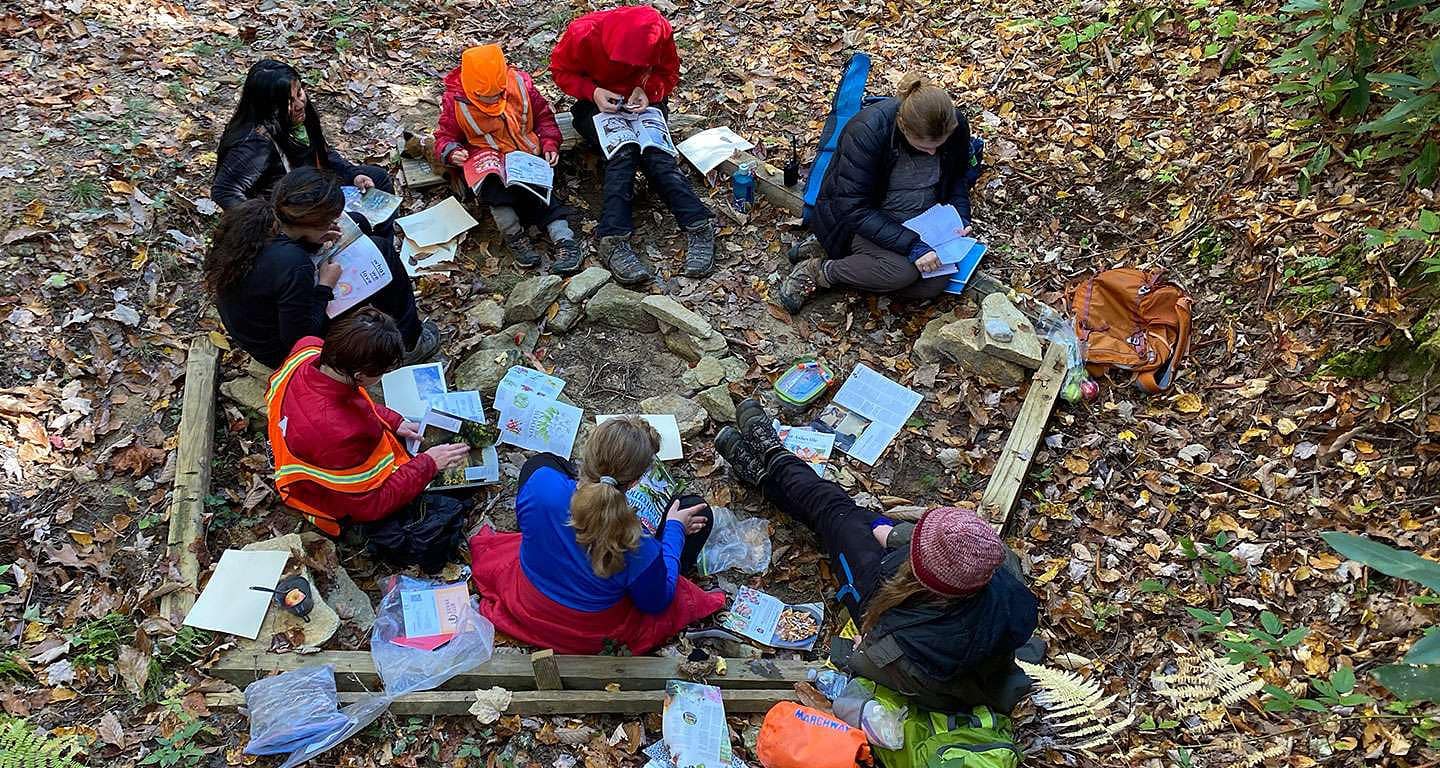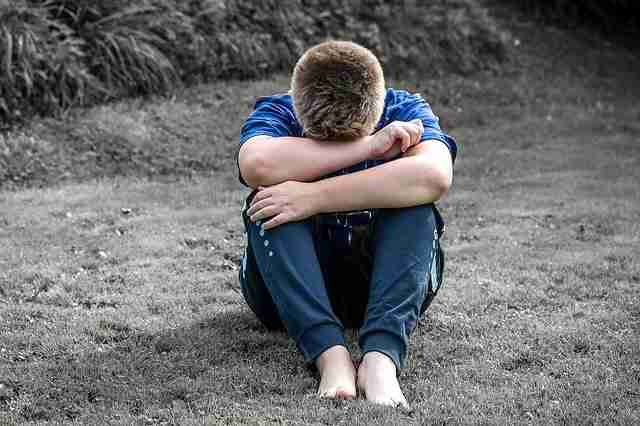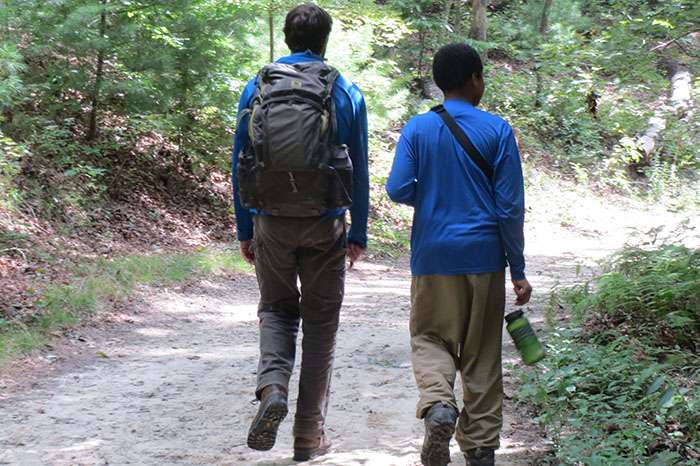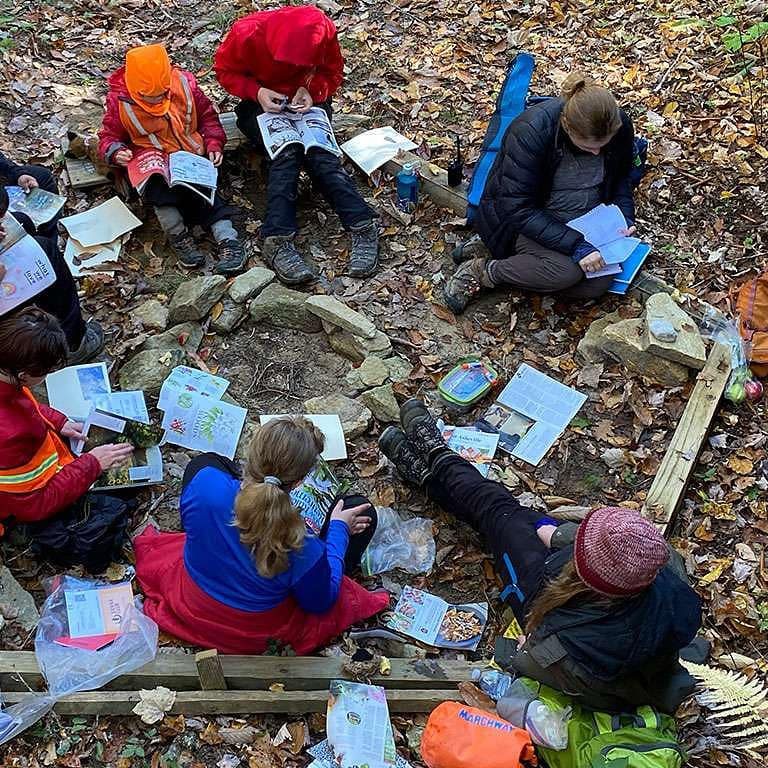An Evidence-Based Approach To At-Risk Youth Programs
Are you concerned about the path your child is on? Are you worried about their behavior and looking for a way to help them get back on track? Whether you are searching for teen intervention services or preventative options, you should consider wilderness therapy as a program for at-risk youth.
Wilderness therapy programs offer a unique approach to mental health and wellness, particularly for at-risk youth.
At Trails Carolina, our wilderness therapy methods have proven to be extremely effective as an at-risk therapeutic crisis intervention program, providing participants with the tools and resources they need to achieve long-term success.

What Does "At-Risk" Mean?
"At-risk youth" is a term used to describe young people who are facing various challenges or are at risk of negative outcomes, such as dropping out of school, involvement in criminal activity, drug and alcohol experimentation or substance abuse problems, and mental health issues.
The risk factors that contribute to a young person's at-risk status are complex and can be related to both external factors, such as growing up in foster care, cultural factors, such as socio-economic status, and internal factors, such as mental health conditions.
At-risk youth are at risk for a wide range of negative outcomes, including academic failure, social isolation, emotional and behavioral problems, substance abuse, delinquency, and even suicide. Without intervention and support, these negative outcomes can have long-term and even life-altering consequences for young people.
Interventions such as at-risk youth programs can provide high school students with the resources, coping mechanisms, and support they need to overcome these challenges and build a brighter future.
By addressing the underlying issues that contribute to a person becoming at-risk status, these programs and services can help young people avoid falling into a substance use problem, the juvenile justice system, or run-ins with the local government. achieve their full potential and lead successful, fulfilling lives.

How Do I Know If My Child Is At-Risk?
It can be difficult to know if your child can be considered an at-risk youth, as each individual is unique and has their own set of challenges. However, there are some signs and behaviors that may indicate that your child is struggling and may benefit from additional support or intervention. Some common indicators of at-risk youth include:
- Struggling academically or behaviorally in school
- Engaging in risky behaviors, such as drug or alcohol use, self-harm, or criminal activity
- Having difficulty forming positive relationships with peers or adults
- Experiencing significant mood swings or changes in behavior
- Struggling with mental health issues, such as depression, anxiety, or trauma
It's important to remember that every child is different and may exhibit different behaviors or signs of struggle. If you are concerned about your child's well-being or believe that they may be at-risk it's important to seek out professional assistance and guidance from a mental health provider or counselor who can provide a comprehensive individual and family assessment, and mental health evaluations when necessary, and help determine the best course of action.
Risky Behaviors, Negative Consequences, And How Wilderness Therapy Can Help
Poor Academic Achievement/Low Motivation
This can lead to difficulty finding employment or pursuing higher education. Trails Carolina's nature-based therapeutic programs help at-risk students improve academic performance through academic support and skill-building activities, such as tutoring, study skills development, and academic goal setting.
Substance Use
This can lead to addiction, physical health problems, or legal issues. Wilderness therapy programs can help at-risk youth address substance abuse by providing education and counseling, promoting healthy coping strategies, and providing peer support for recovery.
Delinquency
This can lead to criminal activity, juvenile court, incarceration, or reduced job prospects later in life. Wilderness therapy programs can help at-risk youth address delinquent or criminal behavior by providing legal education and counseling, teaching conflict resolution and problem-solving skills, and promoting positive behaviors and attitudes.
Social Isolating
This can lead to difficulty forming positive relationships and mental health issues. Wilderness therapy programs can help at-risk youth address social isolation by providing team-building and socialization activities, promoting positive communication and relationship-building skills, and providing individual and group therapy to address mental health issues.
Emotional And Behavioral Problems
This can lead to overall reduced quality of life and well-being. Wilderness therapy programs can help at-risk youth address emotional and behavioral problems by providing individual and group therapy, teaching coping skills and emotion regulation strategies, and promoting positive behaviors and attitudes.
Trails Carolina: The Leading Single-Gender Program For At-Risk Youth Using Wilderness Therapy
At Trails Carolina, we specialize in helping at-risk youth overcome challenges, gain self-confidence and self-efficacy, and replace behaviors and habits that no longer serve them with healthier coping skills.
Our outstanding wilderness treatment center offers programs for groups segmented by gender: wilderness therapy for girls 10-17 and wilderness therapy for boys 10-17.
We then segment our single-gender groups by age (Adolescent Groups 10-13 and Teen Groups 14-17) which allows us to provide age-appropriate care to all.
No matter their group, our students thrive by establishing an emotionally strong peer environment, and the programming is tailored to meet the needs of pre-teens and teens while maximizing the benefits of the wilderness environment.

Middle school aged children need concrete experiences and teachable moments that help them to practice the critical thinking, problem-solving, and conflict-resolution skills they’ll need to thrive as they enter their teenage years and young adulthood.
Group conversations focus on topics relevant to this age group and steer clear of more mature topics inappropriate for this younger group.
High school students need a balance of structured guidance and opportunities to develop their own self-efficacy and identities.
We have designed our programming to empower boys and girls to exercise agency for their needs and accountability for their choices. This improves participation in their communities and relationships with family, peers, the community, and school.
Our blend of therapeutic approaches, including individual and group experiential therapies designed to instill the skills and mindset for healthier and happier young adults.
Ultimately, the purpose of this program is to produce emotional growth and establish positive behavior patterns that will disrupt troubling behaviors. Students who participate will learn to recognize and manage their needs and emotions, communicate in a healthy way, make thoughtful decisions, and resolve conflicts without aggression.
Get started today
Contact us today to learn how Trails Carolina can help your family
Trails saved my daughter’s life. Amanda is an amazing human and a brilliant therapist. I am so grateful to her, Science Steve, and the other wonderful people who could reach my daughter at a time when I could not.
Margot Lowman August 2022
Great life changing experience for our son. After becoming addicted to gaming during covid he was very depressed. At Trails he experienced the wilderness, Science Steve, learning survival skills and top notch therapy and support etc… I highly recommend! This gave our son and our family a renewed family bond full of love and excitement about his bright future.
Winnifred Wilson July 2022
Outstanding clinical work and superb staff! There’s a great culture at this company and it shows with how they engage with families/clients.
Kristin Brace June 2022

